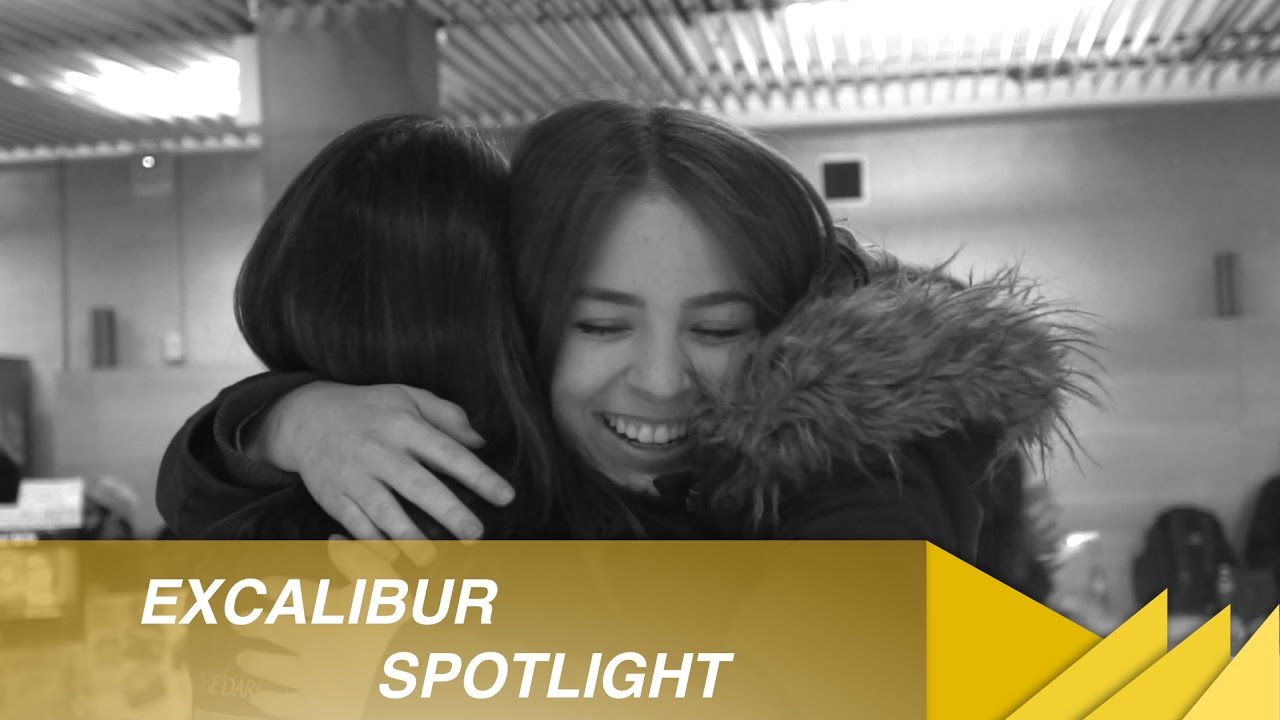Matt Dionne | Sports and Health Editor
Featured video by Alexander DeSouza
In 2004, Juan Mann was feeling extremely depressed and isolated. That is, until he attended a party and something life-changing happened.
“I went out to a party one night and a completely random person came up to me and gave me a hug. I felt like a king! It was greatest thing that ever happened,” he said.
After that, Mann began the Free Hugs Campaign, where he would go to crowded places with a free hugs sign, offering strangers the same warmth and affection that was afforded to him months prior. In 2006, the Free Hugs movement went viral after a music video showed footage of Mann offering free hugs at various locations.
“When you hug someone with a great energy, you feel better because you’re transferring energy to one another. But if it’s with someone who feels sad, you can feel their energy and you just want to give them the happiness you have and make them happier,” says Nahal Shamshiri, third-year sociology student.
“Human touch releases anxiety and de-stresses people, and helps with everyday struggles,” she adds.
“I used to feel really awkward about hugs. But then I realized it was because I was uncomfortable with myself,” says Nancy Truong, second-year biology student.
“When I’m crying I just want someone to cuddle me. A hug can make you feel like you’re not alone in this dark cloud of unhappiness. It’s nice to know someone is there for you, holding you and guiding you through whatever you’re going through.”
It should come as no surprise that the Free Hugs Campaign gained so much popularity. Giving someone a hug offers a myriad of health benefits, both mentally and physically.
A hug can help lower blood pressure, reduce heart rate and decrease a person’s cortisol, or stress hormone, levels. While adults benefit the most from hugs due to increased feelings of stress and loneliness, studies show that babies who receive lots of hugs in their formative years are less stressed as adults.
Hugs are also a great treatment for people feeling anxious, as they help our bodies release tension and send calming messages to the brain.
“When I hug someone, it allows me to let go of what I’m going through and it allows me to open up to somebody else. [I feel like I am] letting go of what I’m holding onto and experiencing that release as I’m hugging that person—the exchange of emotions,” says Matt Render, fourth-year psychology student.
When we give or receive a hug, our brain releases oxytocin, also known as the bonding hormone. Oxytocin is a neuropeptide, which means it stimulates activity in the brain—specifically, it fosters feelings of bonding and trust.
But it’s not just the hug itself that is gratifying. Sometimes, just the offer of a hug can provide a deep-seated need for validation.
“I think the message of opening up to others and saying: ‘I’m a friend, you’re welcome to get close to me, and I’m here to help you’—that message is very very powerful,” says psychology professor Myriam Mongrain.
“The intent can potentially help those that feel alienated and let them know they’re not alone. It’s probably one of the best therapeutic effects—breaking those feelings of isolation that students can have. Sometimes students can feel as though ‘nobody cares,’ and ‘I’m just a number in a crowd;’ then all of a sudden somebody is noticing you and has good intentions towards you.
“They mean well; that makes you feel good. It’s heartwarming.”
Mongrain believes when we don’t receive the contact that we need, it can be extremely stressful and damaging. We can begin to isolate ourselves and that can become toxic.
In a social experiment, Excalibur partook in its own Free Hugs Campaign, standing between Central Square and Vari Hall with handmade signs.
The results were overwhelming.
“When you set up a free hug booth, you’re inviting individuals into a space where you’re opening up your arms and you’re saying: ‘I can be trusted, and I’m here because I care.’ And I think that’s quite healing, especially if you’re in an environment that’s very divisive, where there’s a lot of tension,” adds Mongrain.
With over 30 participants from a range of programs, backgrounds and experiences, the short-lived campaign brought together strangers who, at the end of the day, just needed a hug.



This article is fantastic and includes extremely important information about the importance of hugs, particularly at universities where many students are away from their families for the first time and may find that social isolation and a lack of physical contact can affect all aspects of their lives. We’ve shared it on our Facebook page at https://www.facebook.com/hugsarenice/ and we hope you keep up this very valuable service!